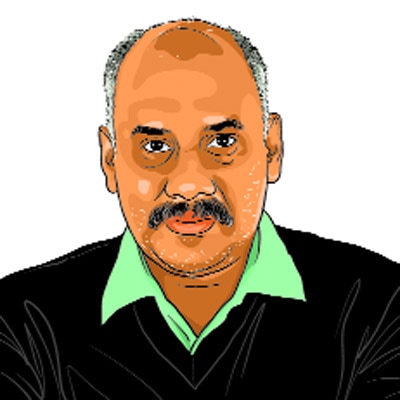Opinion Game of trust
Why the Clarke-Arthur combine failed where Kirsten-Upton succeeded
Why the Clarke-Arthur combine failed where Kirsten-Upton succeeded
A pleasant Colombo evening brings with it ample options for a visitor. On one such evening,during the 2008 tour, Zaheer Khan headed out for dinner after a gruelling day of practice. But after he stepped out of the elevator at the Taj Samudra,the evening didnt take the planned course.
Once in the lobby,Indias No 1 pacer was cornered by the teams new mental conditioning coach,Paddy Upton. A regular on the supper-speech circuit and at corporate seminars,author of a weight-loss book and bearer of a Masters degree in sports science and cricket coaching,Upton was never short of words. On this occasion,he kept up a stream of questions. The South African just loved long,casual chats. Unconfirmed reports say Zaheer had to be content with room service that day.
Subsequently on that tour,players would hide or change course to avoid a man who was merely doing his job,which was to get under the skin of the Indian cricketers to read their minds. Those were the early days of scepticism in the Gary Kirsten-Upton era. Dodging Upton was but a natural resistance to change.
In recent years,physics,biology and chemistry have been dedicated chapters in coaching manuals. Corporate concepts of leadership have crept into sporting arenas. Brain-mapping experts have found their way into the locker room,trying to deduce that elusive winning psychology. For most athletes,who would have looked down on the academically inclined since their schooldays,this wasnt acceptable. To be dictated by ideas borrowed from the suit-wearing world wasnt easy either.
This ingrained resentment among the stars of the sporting world has triggered several coach versus player conflicts. Australia has been fertile ground for such differences,the most famous being the very entertaining and very public war of words between Shane Warne and John Buchanan. In a charitable mood,Warne called Buchanan a very average cricketer turned innovative coach who over-complicated issues and lacked common sense. At other times,Buchanan was a goose,prone to regular bouts of verbal diarrhoea.
The recent homework-gate,where four Australian cricketers were left out of the ongoing Test at Mohali after they failed to list three points to help the team recover in the series,has raised hackles among Australian crickets good old beer-swigging ancestry. Warne is at the helm once again,speaking of a utopian past when all disputes were settled over a drink and a laugh. A few of Warnes vintage have flown off their Twitter handles,dismissing modern coaching methods as useless mumbo jumbo. Its not the Aussie way to play cricket,goes the chorus.
But havent we all heard of great sporting successes that were scripted on excel sheets,with sports psychologists and corporate planners in starring roles? Ironically,Warne stars in one of the most famous of these stories.
The making of the Rajasthan Royals in the first IPL was loosely based on Moneyball principles. Royals coach Jeremy Snape,who was recommended by Warne,believed the role of a psychologist was crucial in modern sport,as 80 per cent of it was mental and 20 per cent technical. Warne was to prepare a detailed document listing the strengths of each player and assigning him a role and a nickname. A bunch of cricketers from India and Pakistan were even asked to look within. Michael Clarke and Micky Arthur were conveying much the same message to the four cricketers they axed.
Virender Sehwag,the man believed to possess the simplest technique and the clearest mind,says sports psychologist Rudi Webster helped him regain his touch. Even the Calypso charmers of the 1980s,Clive Lloyds Invincibles,never failed to thank Webster.
The acceptability of any idea depends on the acceptability of the person who floats it. Teams are open to the most bizarre coaching methods if they trust the person in charge. Thats the reason Warne was on board with Snape but not with Buchanan. Thats the reason the Royals Class of 2008 blindly followed Warne,but Shane Watson and company drifted away from Clarke and Arthur.
Months after Greg Chappell left India,ending a bitter chapter,Sachin Tendulkar had a very significant meeting with new coach Kirsten. I want you to be my friend, Tendulkar is said to have told Kirsten. Over a period of time,both Kirsten and Upton proved to the team that they were genuine friends and well-wishers. It was a perfect combination. Uptons long chats would help him know how Team India thought and Kirstens uncompromising work ethic helped shape the teams actions. They struck a balance between innovative and conventional. But most importantly,they could be trusted.
sandeep.dwivedi@expressindia.com





